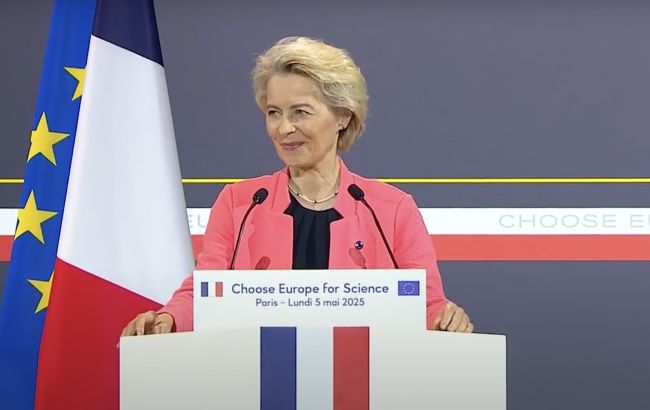Choose Europe for Science: EU offers super grants after US research cuts
 "Choose Europe for Science" event at the Sorbonne, Paris (Screenshot: YouTube)
"Choose Europe for Science" event at the Sorbonne, Paris (Screenshot: YouTube)
Amid sweeping cuts to US science programs tied to diversity and inclusion, Europe is opening its doors to global researchers with new grants and legal protections, according to NBC News.
At the "Choose Europe for Science" conference in Paris, French President Emmanuel Macron and European Commission President Ursula von der Leyen made a joint appeal to researchers facing restrictions in the United States.
Macron sharply criticized the rollback of research support under President Donald Trump, saying, "A few years ago, no one would have imagined that one of the biggest democracies in the world would cancel research programs under the pretext that the word diversity was in this program."
He further condemned the limitations placed on visa access for scientists, noting, "No one would have thought that one of the biggest democracies in the world would delete with a stroke the ability of one researcher or another to obtain visas. But here we are."
Macron emphasized that France will soon unveil new national policies to boost investment in scientific research and attract global talent.
EU unveils 'super grant' program to lead global science efforts
Taking the stage at Sorbonne University, von der Leyen announced a 500 million euro "super grant" fund to be rolled out between 2025 and 2027.
The funding will be channeled through the European Research Council, which already holds a 16 billion euro budget through 2027.
"This is to make Europe a magnet for researchers," she said, adding that the EU plans to legislate the protection of scientific freedom across its member states.
Referring to the global rise in restrictions on academic inquiry, von der Leyen called it "a gigantic miscalculation" to undermine open research, stressing that "science has no passport, no gender, no ethnicity, no political party."
She reaffirmed that diversity is not only a moral value but "the lifeblood of science."
The EU also plans to simplify bureaucratic hurdles and improve cooperation between scientists and industry.
While US researchers face growing limitations, Europe is positioning itself as the new global stronghold for free, diverse, and well-funded scientific inquiry.
A recent case reported by The Washington Post highlights just how tense the climate has become for American scientists: two US-based researchers withdrew from an international evolution study, citing fears of political repercussions and possible deportation.
As a result, the entire project — originally intended for publication in a leading scientific journal — was canceled.

